EFFECTIVE LITERACY PODCAST
Join Victoria and Anna, along with expert guests and industry friends, in a deep-dive investigation into just what literacy is and how we can improve literacy instruction for multilingual learners.
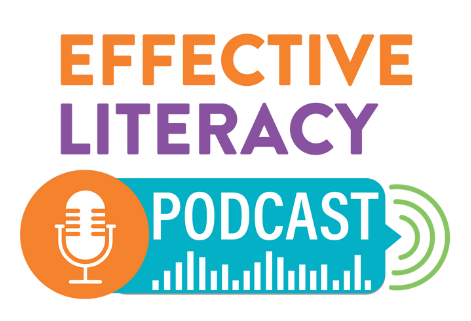
INTRODUCTION
Welcome to the Effective Literacy Podcast
Meet Anna and Victoria, two educators passionate about reading and all things literacy.
About the Introduction
Meet Anna and Victoria, two educators passionate about reading and all things literacy. Join them as they interview experts from across the nation with expertise in literacy and multilingual education in an effort to better understand research and how to support our students, specifically our multilingual learners, in becoming literate individuals by the time they graduate high school.
More resources:
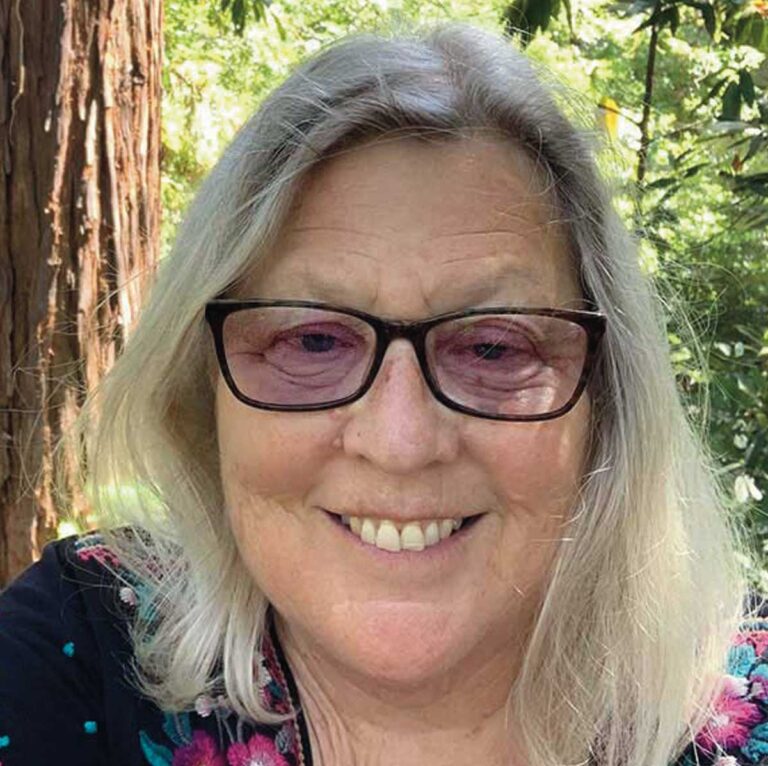
About Dr. Laurie Olsen
With a Ph.D. in social cultural studies in education, Dr. Olsen has been an educator, a writer, and an advocate for half a century. Dr. Olsen has designed and led demonstration projects and evaluation projects in English learner and immigrant education, with a strong emphasis on educational equity. She has written dozens of books, articles, and reports on effective schooling for language minority children and on equity-centered school reform. She is the child of a writer and has been an avid reader since her early years. For 20 years, Dr. Olsen has led California Tomorrow, a nonprofit organization focused on equity and diversity. She is the founder and directed the Sobrato Early Academic Language model, as well as a founding board member, and now acting president of Californians Together – a coalition for an educational system that is funded and structured so every child will have full access to high-quality 21st-century education and will graduate from our public schools fully prepared for success in college and career and full civic participation.
EPISODE 1
Part I of Dr. Laurie Olsen
Dr. Olsen shares what effective literacy looks like and sounds like in classrooms.
About Episode 1
Dr. Olsen shares what effective literacy looks like and sounds like in classrooms. Effective literacy begins with reading and the many reasons we use reading – access, participation, and being engaged academically. But it is also more than that: it is about pleasure, information, and company. To write is to put your words, thoughts, and dreams down on paper.
More resources:

About Dr. Laurie Olsen
With a Ph.D. in social cultural studies in education, Dr. Olsen has been an educator, a writer, and an advocate for half a century. Dr. Olsen has designed and led demonstration projects and evaluation projects in English learner and immigrant education, with a strong emphasis on educational equity. She has written dozens of books, articles, and reports on effective schooling for language minority children and on equity-centered school reform. She is the child of a writer and has been an avid reader since her early years. For 20 years, Dr. Olsen has led California Tomorrow, a nonprofit organization focused on equity and diversity. She is the founder and directed the Sobrato Early Academic Language model, as well as a founding board member, and now acting president of Californians Together – a coalition for an educational system that is funded and structured so every child will have full access to high-quality 21st-century education and will graduate from our public schools fully prepared for success in college and career and full civic participation.
EPISODE 2
Part II of Dr. Laurie Olsen
Dr. Olsen describes how educators, families, and communities can partner to support multilingual learners.
About Episode 2
As we continue our conversation with Dr. Olsen, she describes what educators and schools can do to partner with families and communities in their effort to support multilingual learners. She also digs into what is going well across the nation in regard to educational policy for reading instruction.
More resources:
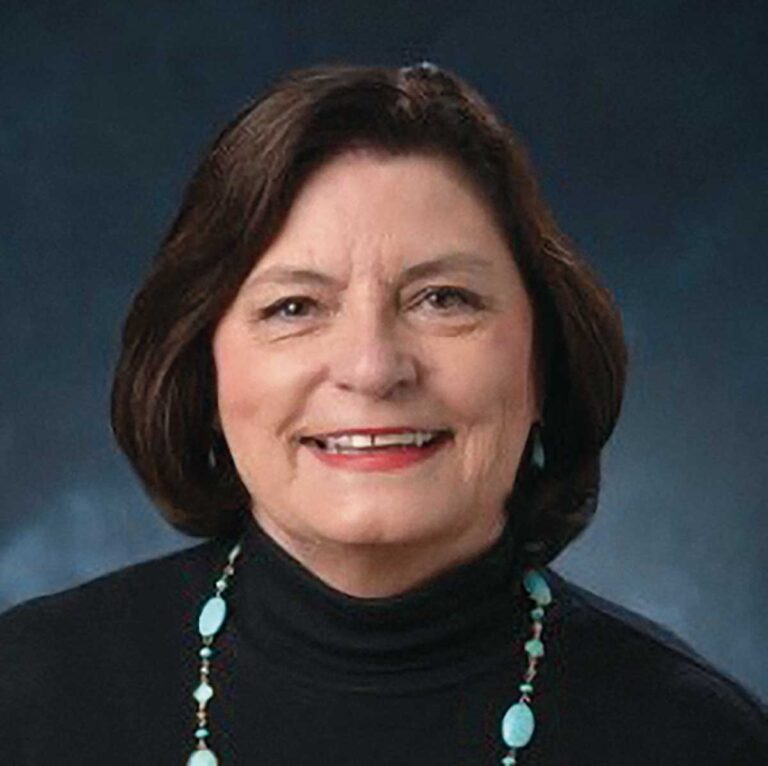
About Dr. Kathy Escamilla
Dr. Kathy Escamilla is Professor Emeritus in the Equity, Bilingualism, & Biliteracy Division of the BUENO Center for Multicultural Education at the University of Colorado Boulder. Additionally, she is the author of numerous articles and books including Biliteracy From the Start: Literacy Squared In Action. She is specifically interested in issues related to the development of bilingualism and biliteracy in early elementary grades for the Spanish-speaking population. Her recent research has also examined assessment practices and the impact of high-stakes testing on these children. Dr. Escamilla is a member of numerous professional organizations in education and has served two terms as the president of the National Association for Bilingual Education. She has recently been appointed as a co-editor of the Bilingual Research Journal and has served as the chairperson of the Bilingual SIG for the American Education Research Association (AERA).
EPISODE 3
Part I of Dr. Kathy Escamilla
Dr. Escamilla outlines the key components of literacy.
About Episode 3
Dr. Escamilla describes how oracy, writing, and meta-linguistic development are key components of an effective literacy classroom. To get our students ready to be citizens of the world, we need to think about multilingualism and the role that it plays in our students’ literate lives.
More resources:

About Dr. Kathy Escamilla
Dr. Kathy Escamilla is Professor Emeritus in the Equity, Bilingualism, & Biliteracy Division of the BUENO Center for Multicultural Education at the University of Colorado Boulder. Additionally, she is the author of numerous articles and books including Biliteracy From the Start: Literacy Squared In Action. She is specifically interested in issues related to the development of bilingualism and biliteracy in early elementary grades for the Spanish-speaking population. Her recent research has also examined assessment practices and the impact of high-stakes testing on these children. Dr. Escamilla is a member of numerous professional organizations in education and has served two terms as the president of the National Association for Bilingual Education. She has recently been appointed as a co-editor of the Bilingual Research Journal and has served as the chairperson of the Bilingual SIG for the American Education Research Association (AERA).
EPISODE 4
Part II of Dr. Kathy Escamilla
Dr. Escamilla talks about curriculum, parent engagement, and policy.
About Episode 4
As we continue our conversation with Dr. Escamilla, she describes the characteristics of effective literacy curricula and parent engagement, supportive state policy, and the development of biliterate citizens of the world.
More resources:
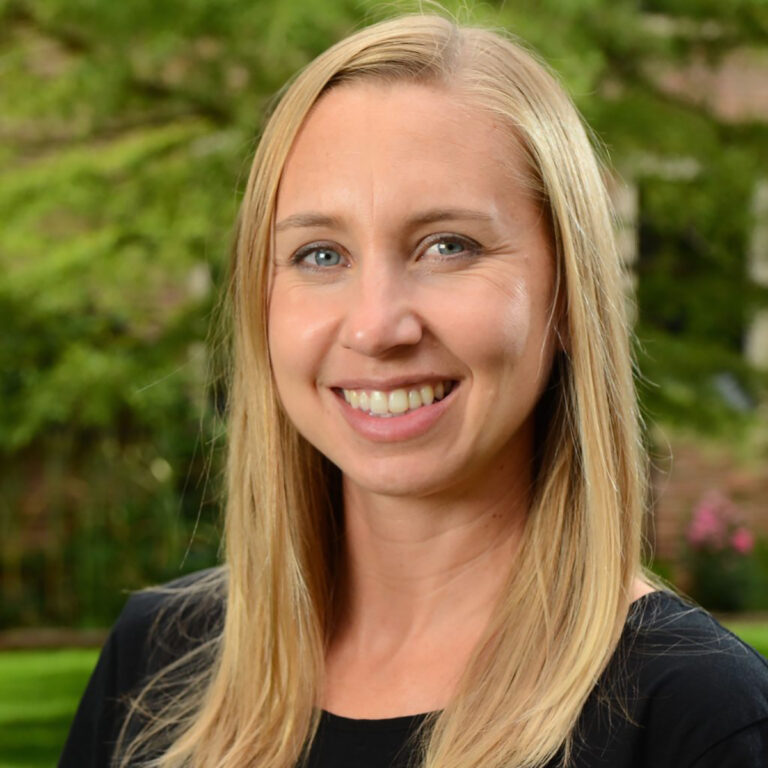
About Dr. Jody Slavick
Dr. Slavick is one of the contributors to the National Committee for Effective Literacy’s white paper, Toward Comprehensive Effective Literacy Policy and Instruction for English Learner/Emergent Bilingual Students. She currently serves as the director of professional development for the Literacy Squared program at the BUENO Center at the University of Colorado Boulder. She received her Master’s Degree in Bilingual Special Education and her Ph.D. in Educational Equity and Cultural Diversity. Prior to obtaining her Ph.D., Jody worked as a classroom teacher, instructional coach, and district resource teacher in bilingual education and English as a second language programs.
EPISODE 5
Dr. Jody Slavick
In effective literacy instruction, students tap into their full linguistic repertoires
About Episode 5
Dr. Slavick shares that there are multiple dimensions of literacy in all grade levels. In order for our students to be literate, our classrooms need to centered around interacting with a variety of languages, even in English medium classrooms. Students need to be engaged with using their entire linguistic repertoires as much as possible – we need to encourage students to tap into all of the knowledge they have in all of their languages. All new learning is based on previous learning, and we cannot cut off all of the language learning that is happening outside of the classroom.
More resources:
Pearson, P. D., Palincsar, A. S., Biancarosa, G., & Berman, A. (2020). Reaping the rewards of the Reading for Understanding initiative. National Academy of Education.
Ziegler J. C., & Goswami U. (2006). “Becoming literate in different languages: similar problems, different solutions.” Developmental Science, 9(5): 429-36.

EPISODE 6
Making Meaning of Episodes 1-5
We analyze our first five episodes.
About Episode 6
In this first making meaning episode, we’re diving into how our time with Dr. Laurie Olsen, Dr. Kathy Escamilla, and Dr. Jody Slavick helped us better understand literacy. We talk about their explanations of the explicit attention to oracy in every classroom, the professional learning needs of educators, and inviting family engagement. The episode is a mix of analysis of episodes 1-5 of this series and ideas for teachers to consider for your students.
More resources:
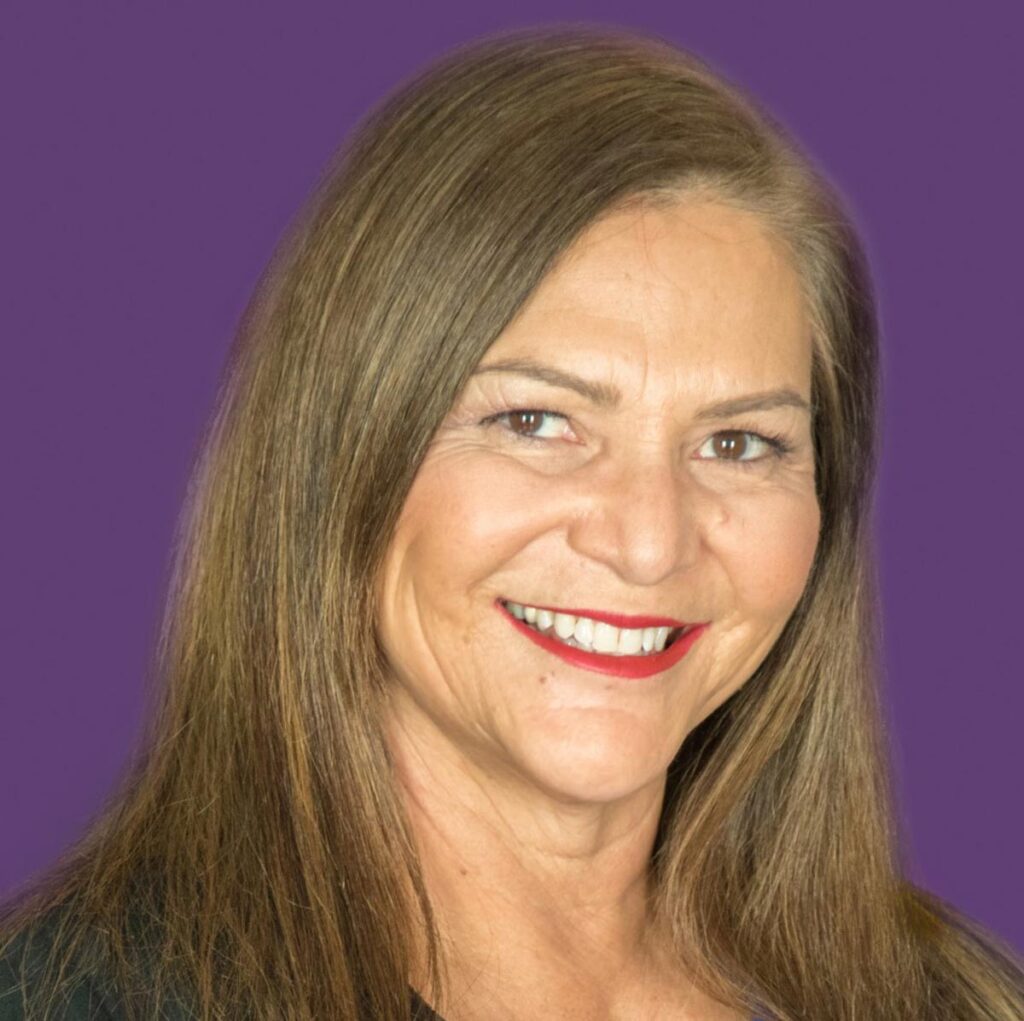
About Dr. Socorro Herrera
Dr. Socorro Herrera is a professor in the Department of Curriculum and Instruction, College of Education at Kansas State University and directs the Center for Intercultural and Multilingual Advocacy (CIMA). Her K-12 teaching experience includes an emphasis on literacy development and her research focuses on literacy opportunities with culturally and linguistically diverse students (CLD), reading strategies, and teacher preparation for diversity in the classroom. Her work also has appeared in journals such as the Bilingual Research Journal, Journal of Hispanic Higher Education, Journal of Research in Education, Journal of Curriculum and Instruction, and the Journal of Latinos and Education. In addition to her writing, Dr. Herrera conducts multi-state and international professional development on issues related to teacher preparation for pre-service teachers, biography-driven instruction, and classroom accommodations for CLD students.
EPISODE 7
Dr. Socorro Herrera
Effective literacy teachers contextualize learning and value home languages
About Episode 7
In this episode, Dr. Socorro Herrera uses the imagery of students “withering on the vine” when educators are fixated on a literacy script. Dr. Herrera reminds us that teachers are the system: it is up to them to contextualize the learning experience, value home languages, and find the strategic tools to harvest and celebrate students’ linguistic repertoires.
More resources:
Borderlands/La Frontera: The New Mestiza by Gloria E. Anzaldúa
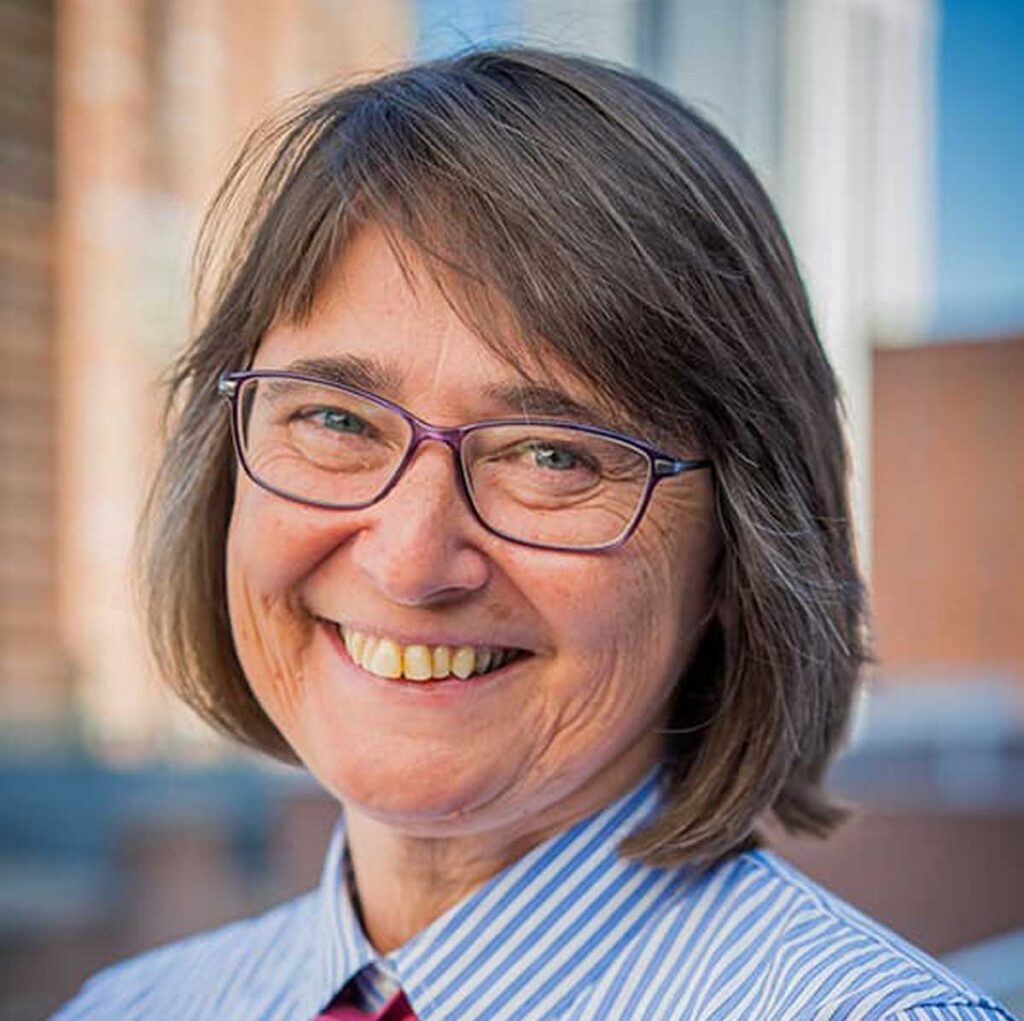
About Dr. Ester de Jong
Ester de Jong is Professor and Program Leader in the Culturally and Linguistically Diverse Education program at the University of Colorado Denver. Prior to UC Denver, she was Director of the School of Teaching and Learning and Professor in ESOL/Bilingual Education at the University of Florida in Gainesville. Her research focuses on equity and integration in the context of dual language education and preparing teachers to work with bilingual learners in K-12 schools. Dr. de Jong was President of TESOL International Association in 2017-18.
EPISODE 8
Dr. Ester de Jong
Effective instruction is meaningful and student-centered
About Episode 8
In this episode, Dr. de Jong defines effective literacy as a noisy classroom full of students talking to each other and students reading books about real things they care about, connect to, and are meaningful to them. Dr. de Jong encourages educators to be critical consumers of curriculum and to center our curricula around our students.

EPISODE 9
Making Meaning of Episode 7 & 8
We chat with teacher Lillie Ruvalcaba about episodes 7 and 8
About Episode 9
In this second making meaning episode, Anna and Victoria are joined by fellow educator Lillie Ruvalcaba. Together they discuss how our podcasts with Dr. Socorro Herrera and Dr. Ester de Jong help educators better understand literacy: the noise of an oracy-forward classroom, side-stepping the curriculum to meet students needs, and harvesting home language to enhance our classrooms. The episode is a mix of analysis of episodes 7 and 8 of this series, and ideas for you to consider for your students.
More resources:
Biography-Driven Culturally Responsive Teaching: Honoring Race, Ethnicity, and Personal History, 3rd Edition, by Socorro G. Herrera with a forward by Geneva Gay.
Foundations for Multilingualism in Education: From Principles to Practice, by Ester de Jong.
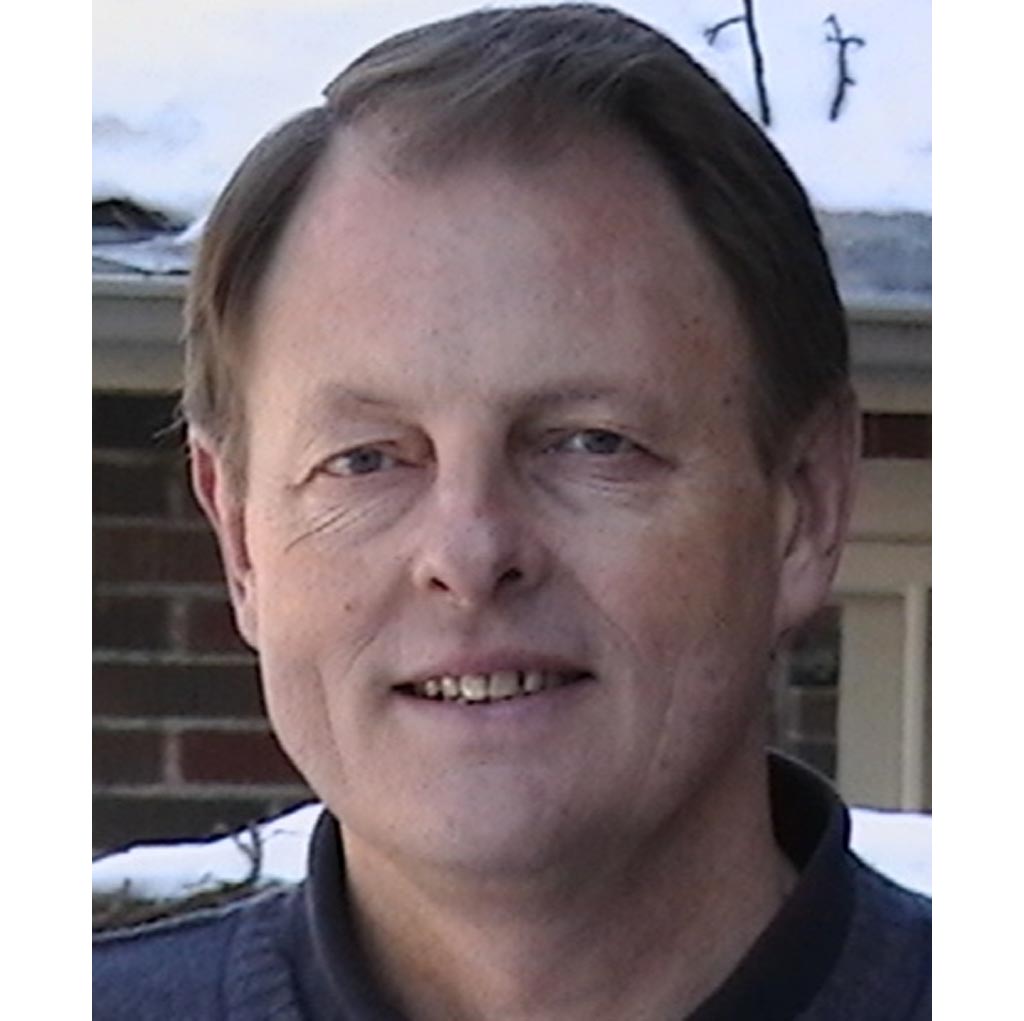
About Dr. Jim Cummins
Jim Cummins is Professor Emeritus at the Ontario Institute for Studies in Education of the University of Toronto. His research focuses on literacy development in educational contexts characterized by linguistic and socioeconomic diversity. In numerous articles and books, he has explored the nature of language proficiency and its relationship to literacy development, with particular emphasis on the intersections of societal power relations, teacher-student identity negotiation, and literacy attainment. His most recent book, Rethinking the Education of Multilingual Learners: A Critical Analysis of Theoretical Concepts (Multilingual Matters), was published in fall 2021. He is the recipient of the International Reading Association’s 1979 Albert J. Harris award and has received honorary doctorates from five universities in North America and Europe in recognition of his contributions to issues of educational equity and multilingual education.
EPISODE 10
Jim Cummins - Part 1
Phonics plays a role, but literacy engagement and print-rich environment is crucial.
About Episode 10
We host Dr. Jim Cummins to discuss literacy socialization, funds of knowledge, and the hybrid language that is English. Dr. Cummins stresses the crucial role of literacy engagement in developing reading comprehension. Explicit phonics instruction plays an important role in developing students’ decoding skills but, to be optimally effective, it needs to be embedded in a comprehensive approach that immerses students in a rich literacy environment.
More resources:
Ontario Human Rights Commission Right to Read Report: Sincere, Passionate, Flawed

About Dr. Jim Cummins
Jim Cummins is Professor Emeritus at the Ontario Institute for Studies in Education of the University of Toronto. His research focuses on literacy development in educational contexts characterized by linguistic and socioeconomic diversity. In numerous articles and books, he has explored the nature of language proficiency and its relationship to literacy development, with particular emphasis on the intersections of societal power relations, teacher-student identity negotiation, and literacy attainment. His most recent book, Rethinking the Education of Multilingual Learners: A Critical Analysis of Theoretical Concepts (Multilingual Matters), was published in fall 2021. He is the recipient of the International Reading Association’s 1979 Albert J. Harris award and has received honorary doctorates from five universities in North America and Europe in recognition of his contributions to issues of educational equity and multilingual education.
EPISODE 11
Jim Cummins - Part 2
How do we help students feel part of a vibrant literacy community?
About Episode 11
In this episode, we continue our conversation with Dr. Jim Cummins who stresses the importance of literacy saturation, literacy excitement, and what educators might do to ensure that students feel part of a vibrant classroom literacy community.
More resources:
Ontario Human Rights Commission Right to Read Report: Sincere, Passionate, Flawed

EPISODE 12
Making Meaning of Episodes 10 & 11
Analysis of our conversation with Dr. Cummins
About Episode 12
In this making meaning episode, we’re diving into our time with multilingual researcher and advocate Dr. Jim Cummins. There was quite a bit to unpack, including how the pendulum swings in literacy pedagogy and instruction, the concept of “literacy saturation,” and the thread between what we learned from Dr. Cummins and past episodes.
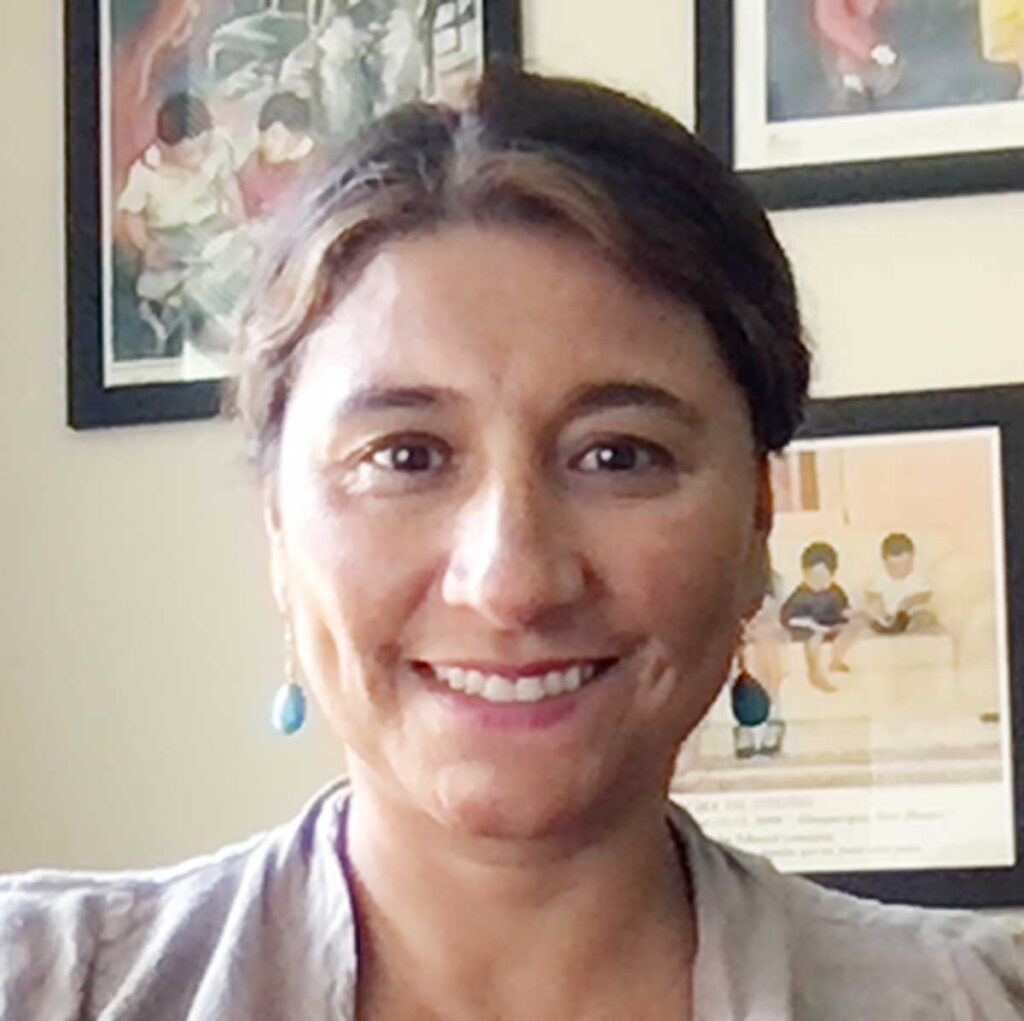
About Dr. Susana Ibarra-Johnson
Susana Ibarra Johnson, Ph.D., is an Assistant Professor of Bilingual Education and TESOL at New Mexico State University. Susana is a former bilingual education teacher. Her understanding and devotion go beyond her academic training to her own experience as a bilingual learner. As a former biliteracy researcher and senior consultant for the WIDA Consortium, she conducted research and facilitated professional learning in language development both in English and Spanish. Currently, as an assistant professor, she specializes in developing courses for bi/multilingual and biliteracy curriculum, instruction, and assessment with bilingual/TESOL educators. Her qualitative research focuses on translanguaging pedagogy in bilingual education and English language development contexts to promote quality and effective bilingual education instructional programs and materials for emergent bilingual student populations.
EPISODE 13
Dr. Susana Ibarra-Johnson
Reading instruction draws on multilingual students’ experiences and traditions.
About Episode 13
In this episode, Dr. Susana Johnson talks about the importance of oral traditions and how her favorite childhood books were the oral stories her parents told. She reminds us that effective reading instruction has to draw on students’ socio-cultural experiences and multilingualism, and that rich literature allows students to draw on their experiences and their funds of knowledge.
More resources:
García, O., Johnson, S. I., Seltzer, K., & Valdés, G. (2017). The translanguaging classroom: Leveraging student bilingualism for learning. Philadelphia, PA: Caslon.
Johnson, S.I. (2021). A Chicana borderlander maestra teaching without fronteras. Multilingual Educator. 69-72.
Johnson, S.I. (2022). Leveraging translanguaging through biliteracy: A wide-angle view of literacy with linguistically diverse students. Multilingual Educator. 49-52.
Johnson, S.I., García, O., Seltzer, K. (2019). Biliteracy and Translanguaging in Dual-Language Bilingual Education. In: DeMatthews, D., Izquierdo, E. (eds) Dual Language Education: Teaching and Leading in Two Languages. Cham, Switzerland: Springer.
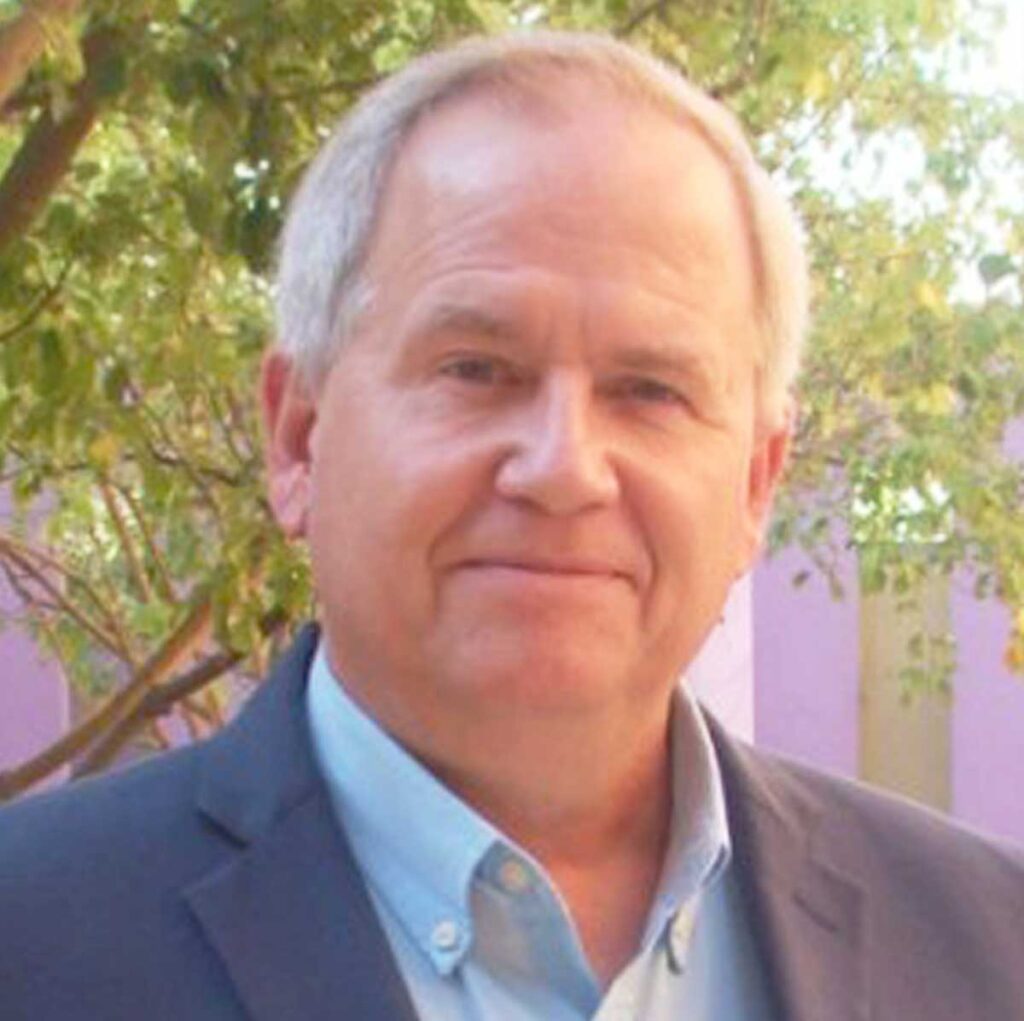
About David Rogers
David Rogers supports the work of Dual Language Education of New Mexico (DLeNM) whose mission is to promote the effective design and implementation of dual language education (www.dlenm.org) in New Mexico, and beyond.
In his thirty-five years as an educator, David has served as an education volunteer and program coordinator in Peace Corps Paraguay, South America, a bilingual special education teacher in South Bronx, NY, and as a dual language classroom teacher, bilingual program coordinator, and school principal in the South Valley of Albuquerque. In 1996 David and his colleagues helped to organize the first La Cosecha Dual Language Conference, which is hosted by DLeNM, where David served from 1999 until 2022 as the its first Executive Director.
David is an advocate for culturally and linguistically diverse communities, and has provided leadership support for advocacy groups like Transform Education New Mexico and NM Hispanic Education Advisory Council, and NCEL. David has been recognized by our community for his work including – la Orden de Isabel la Católica, from the King of Spain (2013), Promoting Bilingualism award from the Association for Two-Way Dual Language Education (2014), the Earl Nunn Recognition (2017) from the New Mexico Coalition for Educational Leadership and most recently the Albuquerque Hispano Chamber of Commerce President’s award (2022).
David is husband to dual language educator Rosie González-Rogers, and together they have four bilingual/multicultural daughters and call Albuquerque, New Mexico their home.
EPISODE 14
David Rogers
Policy can be disconnected from what our students need.
About Episode 14
In this episode we chat with David Rogers to further discuss honoring our students’ knowledge and home languages. We also discuss how general policy can be disconnected from what our students need. |
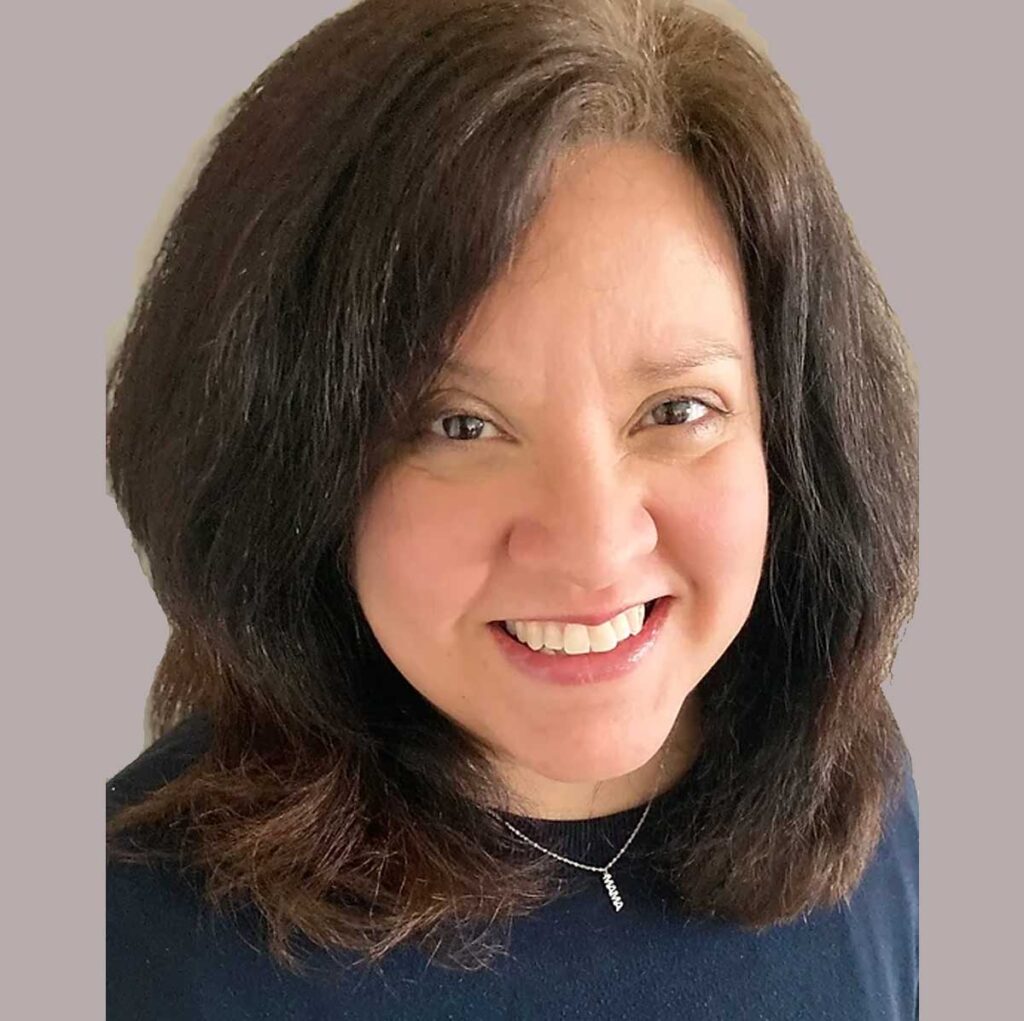
Cristina Sánchez-López
Cristina Sánchez-López collaborates with educators in the US and Canada on many issues related to the education of Multilingual Learners (MLs) including developing culturally and linguistically sustaining Multi-tiered Systems of Support (MTSS); bilingual special education; middle school mathematics; curriculum development; literacy across the content areas; parent engagement, and supporting early childhood educators who serve young dual language learners (DLLs). Cristina has taught at the elementary, middle school and university levels in the US and Mexico. She currently teaches graduate and undergraduate courses in multilingual education. Cristina is co-author a number of publications including: Oxford University Press series Concepts for the Language Classroom Series: Focus on Special Educational Needs (2018); Special Education Considerations for Multilingual Learners: Delivering a continuum of services, 3rd edition (Brookes Publishing, 2023); Welcoming Bilingual Learners with Disabilities into Dual Language Programs (CAL, 2022); and an upcoming chapter entitled Collaborating at the Bilingual Special Education Interface in ¡Qué BUENO! A History of the BUENO Center and its Legacy.
EPISODE 15
Cristina Sánchez-López
Effective classrooms and curricula are representative of our students.
About Episode 15
In this episode, Cristina Sánchez-López discusses that knowing our students is the most important thing educators can do. We support our students best when our classrooms and curriculum are representative of our students.
More resources:
Identity Texts (from the Center for Literacy Education)
Resources from mylanguage.ca
Welcoming Bilingual Learners with Disabilities into Dual Language Programs

EPISODE 16
Making Meaning of Episodes 13, 14, and 15
We dive into discussion of our most recent episodes
About Episode 16
In this making-meaning episode, we’re diving into our time with Dr. Susana Johnson, David Rogers, and Cristina Sánchez-López. We discuss how to acknowledge and build on students’ home language experiences and create rich classroom experiences that focus on strong oral language skills. We also discuss what it means to teach students to be literate and what to do with that literacy.
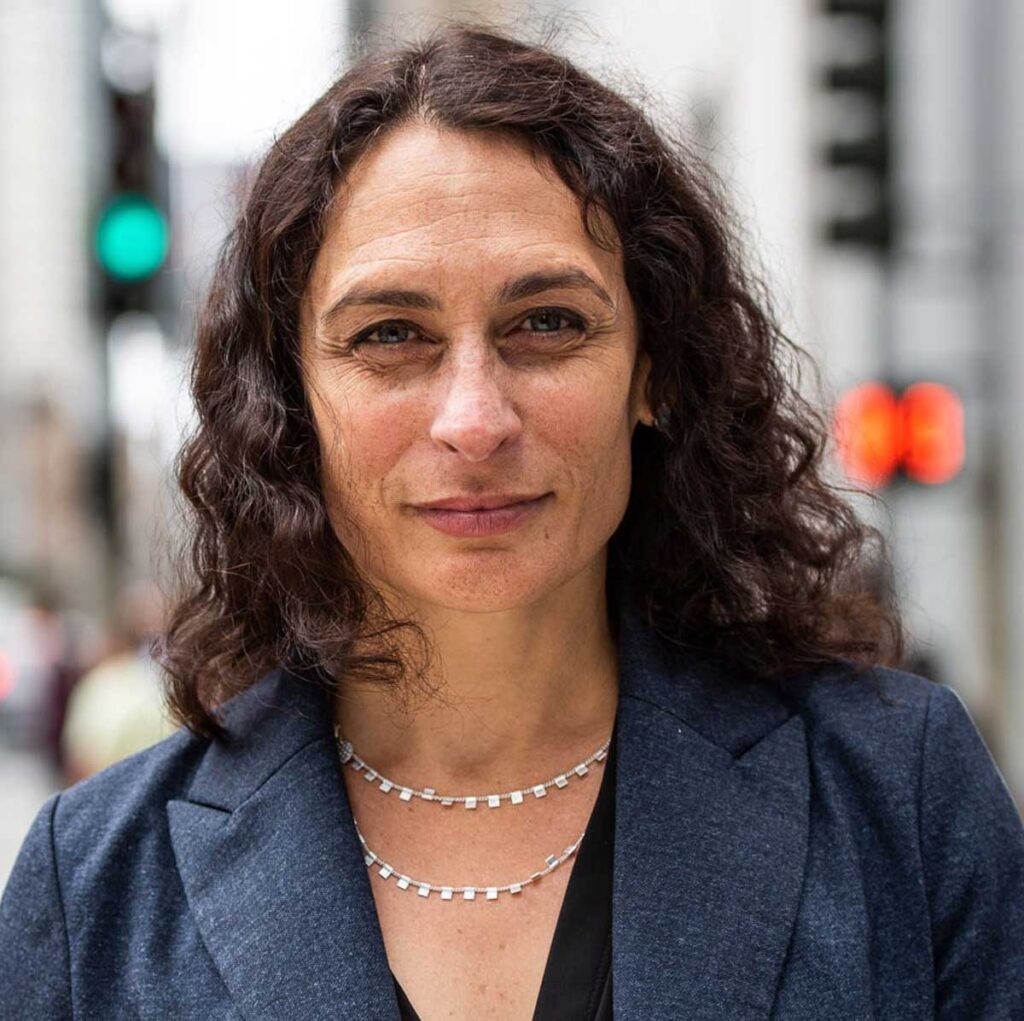
Nicole Knight
Nicole Knight is the Executive Director of the English Language Learner and Multilingual Achievement Office at Oakland Unified School District in California. She is honored to have served Oakland students for the last 24 years as a teacher, teacher leader and instructional leader at the site and district levels. A National Board Certified Teacher in English as a New Language, Nicole has expertise in language and literacy development of multilingual learners, professional development for teachers and leaders, and equity-centered systems of continuous improvement. She is also the mother of two bicultural and bilingual children, both students in Oakland public schools.
EPISODE 17
Nicole Knight
Students are creators of their own narratives
About Episode 17
In this episode, Nicole Knight shares her experience as both a classroom teacher and a district leader. She reminds us to start with our students, who we want to be engaged, empowered, critical consumers that are creators of their own narratives.
More resources:
OUSD Roadmap to ELL Achievement, 2021-24
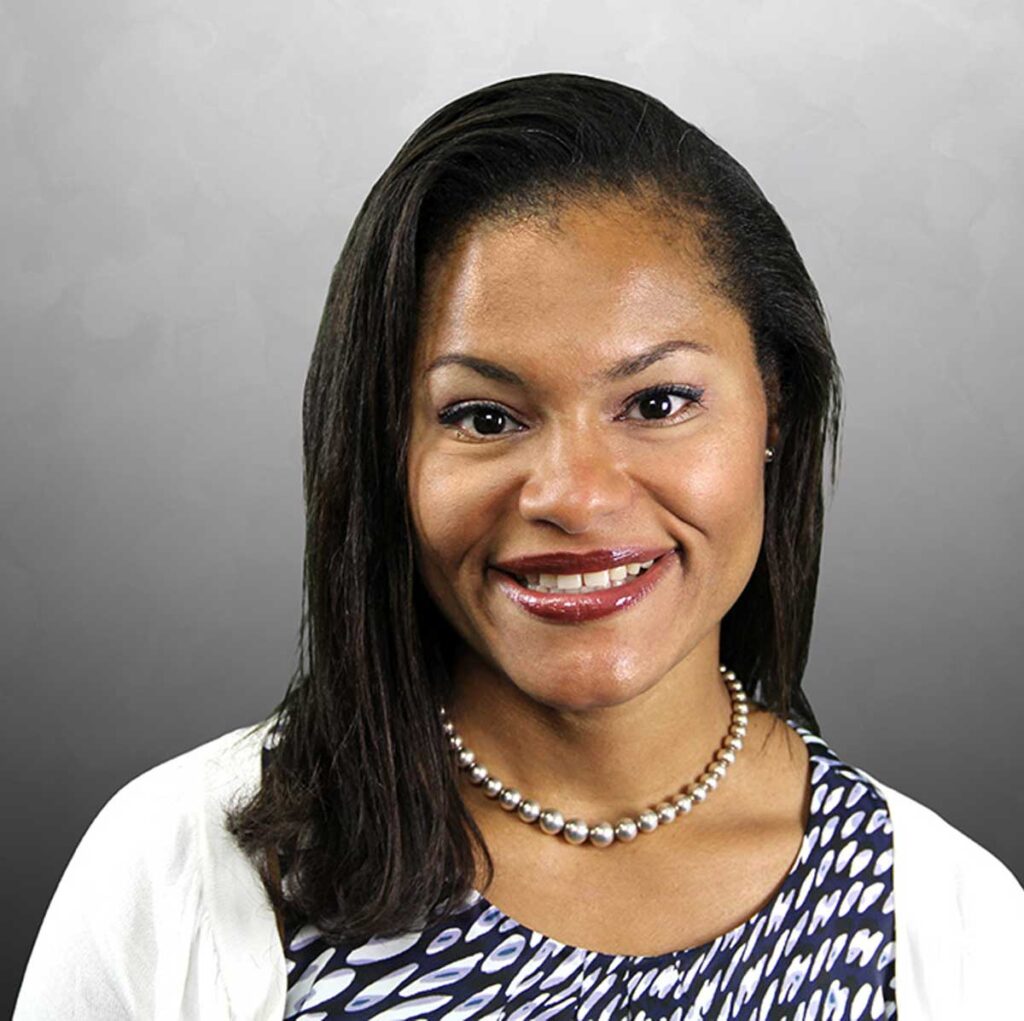
Alexandra Güílamo
As a language learner herself, Alexandra Güílamo has spent more than twenty years serving a wide range of language learner programs. Alexandra is a former teacher, academic coach, elementary school principal, and district-level director in highly diverse urban and suburban school districts. She is one of the leading dual-language experts, an author and keynote speaker, and the Chief Equity & Achievement Officer at TaJu Educational Solutions – a company dedicated to professional development, coaching, and technical support for the educators, leaders, and communities of dual language and bilingual programs.
EPISODE 18
Alexandra Güílamo - Part 1
What the science of the bilingual brain means for instruction
About Episode 18
This week’s guest, Alexandra Güílamo, brings a research-based perspective to the pod as she discusses the science of the bilingual brain and what it means for curriculum, assessment, and instruction. Hear Alexandra explain the profound importance of transfer for ensuring the structural viability of learning programs, and for enabling students to develop critical reading, writing, and analysis skills. This is part one of a two-part interview.

Alexandra Güílamo
As a language learner herself, Alexandra Güílamo has spent more than twenty years serving a wide range of language learner programs. Alexandra is a former teacher, academic coach, elementary school principal, and district-level director in highly diverse urban and suburban school districts. She is one of the leading dual-language experts, an author and keynote speaker, and the Chief Equity & Achievement Officer at TaJu Educational Solutions – a company dedicated to professional development, coaching, and technical support for the educators, leaders, and communities of dual language and bilingual programs.
EPISODE 19
Alexandra Güílamo - Part 2
Diving deeper into the science of language development
About Episode 19
Part two of our conversation with Alexandra Güílamo continues as we dive deeper into the research and data behind language development, and the importance of recognizing student assets at every stage of their learning journeys.
More resources:
The Science of the Bilingual Reading Brain
Coaching Teachers in Bilingual and Dual-Language Classrooms: A Responsive Cycle for Observation and Feedback

EPISODE 20
Making Meaning of Episodes 17, 18, and 19
How can students take stock of their language journeys
About Episode 20
Season 1 concludes with one final ‘Making Meaning’ episode—and there is plenty to process. Meta is the word of the day as we think about the utility of meta-linguistic awareness and transfer as tools that empower students to take stock of their own language journeys. Later, Victoria and Anna assess the assessment systems and dive deep into how they can better serve the needs of multilingual students.
